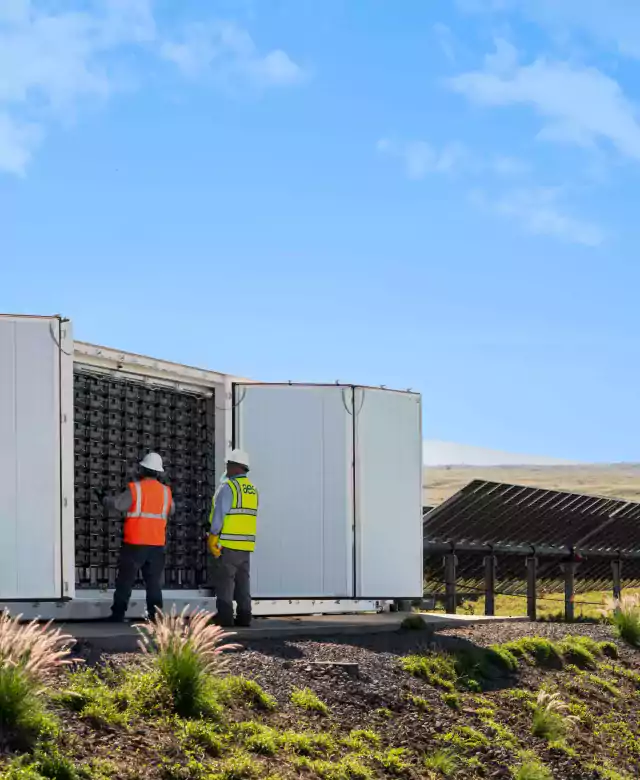
Dec . 13, 2024 19:07 Back to list
distributed energy storage companies products
Exploring Distributed Energy Storage Companies and Their Products
In recent years, the global energy landscape has undergone a significant transformation, largely driven by the increasing integration of renewable energy sources. As part of this evolution, distributed energy storage systems (DESS) have emerged as a crucial technology for enhancing energy resilience, optimizing energy use, and facilitating the transition to a more sustainable grid. This article delves into the leading distributed energy storage companies and their products, showcasing how they contribute to a greener future.
The Importance of Distributed Energy Storage
Distributed energy storage systems are defined as decentralized storage solutions that can be located close to the point of energy consumption or generation. These systems play multiple roles, including balancing supply and demand, providing backup power during outages, and enabling the integration of intermittent renewable sources like solar and wind. They are essential for enhancing grid reliability and stability, especially as more consumers generate their own energy.
Key Players in the Market
Numerous companies have stepped into the distributed energy storage market, each offering innovative products that cater to various user needs. Here are some of the notable players
1. Tesla, Inc. Tesla is a frontrunner in the deployment of energy storage solutions with its Powerwall and Powerpack products. The Powerwall, designed primarily for residential use, allows homeowners to store solar energy for later use, significantly reducing dependence on the grid. The Powerpack, on the other hand, targets commercial and utility-scale applications, providing larger storage capacity to support demand peaks and enhance grid services.
2. LG Chem LG Chem is another significant player in the energy storage industry, offering a range of lithium-ion battery systems for residential and commercial applications. Their RESU (Residential Energy Storage Unit) series is designed for seamless integration with solar energy systems, promoting energy independence for homeowners. With a focus on efficiency and reliability, LG Chem has established itself as a trusted provider in the DESS market.
3. Sonnen German-based Sonnen is known for its innovative energy storage systems, particularly the SonnenBatterie. This product incorporates artificial intelligence and smart technology to optimize energy usage at home. By enabling users to create a virtual power plant, Sonnen's solutions allow communities to share excess energy, thus fostering cooperative energy practices and enhancing sustainability.
distributed energy storage companies products

4. Fluence Energy A joint venture between Siemens and AES Corporation, Fluence Energy specializes in large-scale energy storage solutions for utilities and grid operators. Their product offerings, including the Advancion platform, are designed to support advanced grid management and renewable energy integration. Fluence has positioned itself as a leader in the deployment of battery-based energy storage technologies.
5. Eos Energy Storage Eos Energy Storage is revolutionizing the energy storage sector with its Znyth battery technology. This innovative solution utilizes a unique zinc-based chemistry, providing a cost-effective and sustainable alternative to traditional lithium-ion batteries. Eos’s product is particularly suited for long-duration energy storage applications, helping to bridge the gap between energy generation and consumption.
Applications of Distributed Energy Storage
The products offered by these companies serve diverse applications across various sectors
- Residential Use Homeowners can leverage distributed energy storage systems to maximize their solar investments, reduce energy bills, and ensure backup power. - Commercial Applications Businesses can utilize energy storage to manage peak demand charges, enhance energy efficiency, and support sustainability goals.
- Utility Integration Utilities integrate large-scale energy storage systems to facilitate grid stability, manage demand fluctuations, and enhance renewable energy adoption.
Conclusion
As the world pivots towards a cleaner and more sustainable energy future, the role of distributed energy storage companies and their products becomes increasingly important. By providing innovative solutions that enhance energy efficiency and resilience, these companies are not only transforming how energy is consumed but are also contributing significantly to the reduction of carbon emissions. The widespread adoption of distributed energy storage systems will be crucial in shaping a sustainable energy ecosystem, paving the way for a greener tomorrow.
-
Advanced AI Energy Management with GPT-4 Turbo
NewsAug.02,2025
-
AI-Powered EMS with GPT-4-Turbo | Efficiency Boost
NewsAug.01,2025
-
Optimized Storage System for GPT-4-Turbo | High Performance
NewsJul.31,2025
-
AI Energy Management System w/ GPT-4 Turbo Efficiency
NewsJul.31,2025
-
High-Performance Energy Storage System for Reliable Power Solutions
NewsJul.30,2025
-
Advanced EMS Solutions for Energy Management System & Storage Battery Companies
NewsJul.29,2025























